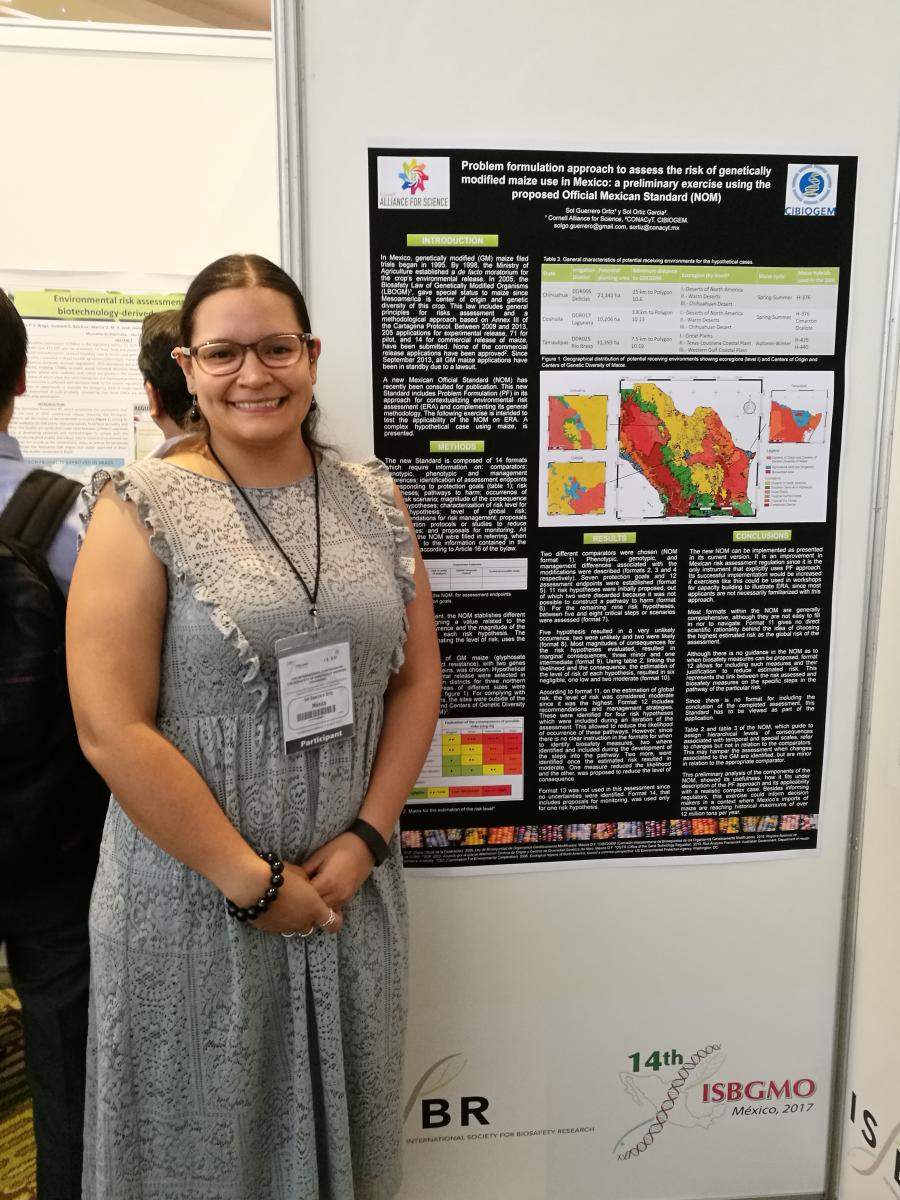
Opening day speakers at the International Symposium on the Biosafety of Genetically Modified Organisms (ISBGMO) played on the theme of this year s event “Environmental Risk Assessment of Genetically Modified Organisms: past, present and future” by highlighting the importance of reflecting on the past and what we have learned from it; assessing the current state of GMO research; and looking forward to the future with new plant breeding techniques.
However, the point that everyone highlighted the most was the importance of good communication. It is incredible to think that, while 88 percent of scientists believe that GMOs are safe for human consumption, only 37 percent of the public share that view. This 51 percent gap in perception is the result of a lack of proper communication. If we want to address the general public and involve vulnerable groups (such as rural and indigenous communities) so that they can take some advantage of the new tools that are being developed, we really need to learn good communication skills. It is also crucial to promote good partnerships and synergies with key stake holders to ensure an integrated and transdisciplinary approach to biotech and GMOs.
After the plenary session, the symposium was divided into three parallel sessions that touched on the following subjects: vertical gene flow, unintended effects in GM plants, and biosafety in Latin America. On a personal note, it was very rewarding to meet Dr. Wayne Parrott in person, since I read some of his work for the Science and Politics of the GMO-MOOC (massive open online course). Dr. Fred Gould s talk about his work on the National Academy of Sciences report on Genetically Engineered Crops: Experiences & Prospects was also very thought-provoking.
Lastly, I participated in the first poster session of the symposium by presenting my poster on the “problem formulation approach to assess the risk of genetically modified maize in Mexico using the proposed offical Mexican standard” to interested and enthusiastic colleagues, so the first day ended on a high note.
Quote of the day: Sustainability requires continuous innovation, progress and improvement; it requires broad cooperation and collaboration.
ISBGMO is a biennial, international meeting that brings together academics, technology developers, regulatory authorities, non-government organizations, students and other credible stakeholders involved in all aspects of biosafety. It offers a unique opportunity to share information and experiences and to engage in open and meaningful discussion on biosafety research, risk analysis, policy and regulatory issues.
The goal of the symposium is to advance the standing of biosafety research around the world and shape the ways in which GM technology is applied and regulated.
Sol Guerrero Ortiz is a 2016 Alliance for Science Global Leadership Fellow.
